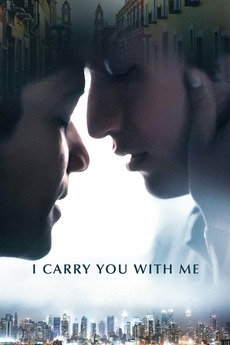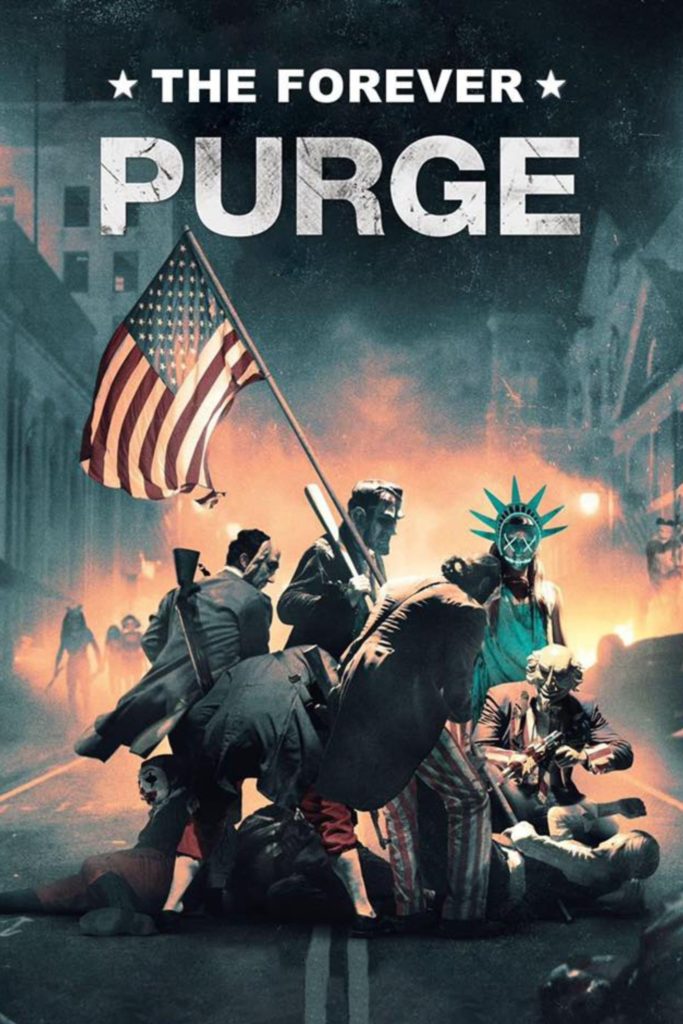
I Carry You With Me, written by Heidi Ewing and Alan Page

The Forever Purge, written by James DeMonaco
The first was infinitely better, although by the end I was not sure what the movie was about. It was more like a character study of a guy and his boyfriend who crossed over the Mexican border to the U.S. and, in New York City of course, managed to go from deliveries and mopping floors to being the chef and owner of his own restaurant. The movie would infuriate anti-immigrant people or people who insist there’s a “right” way of immigrating and an “illegal” way. What those people don’t understand is that the people who do it impulsively, to make money, say, are stuck forever, unable to return to see their families or travel the way any of us born here would. But then that’s where the movie ended — kind of stuck, plot-wise. Perhaps that was the point. I still liked it. The “you” is deceptive and kind of meta, in that it doesn’t actually refer to his partner. The story is based on a true story.
The Forever Purge turns its sight on Racists which has been the under-story for the entire series. The premise of all the purge movies is that one night a year, The New Founding Fathers, (a group that sounds suspiciously like Maga-heads), have declared that for one night a year, from sundown to sunrise, all crime, including murder, is legal. This supposedly allows for citizens to vent their spleen. And crime disappears on the other 364 nights and days. But the entire series is an accidental proof that most people, unlike the Maga-heads, are not interested in murdering, maiming, or beating the shit out of others.
Previously, Purge took on the issue of helping someone who is trapped outside. Most of the movie takes places inside a single home. Purge: Anarchy moved outside and tackled the issue of people working together. I think this was the first time a character said “Fuck the New Founding Fathers.” That’s only important because of the final purge movie. Purge: Election Year (2016) ironically, finds a female presidential candidate under attack by the mob. This movie acknowledged that most of the violence committed on Purge night was against the poor and needy. The First Purge is the most hated of all five movies: and most feel it was absolute racism. But I think they’re overlooking the fact that New Founding Fathers decided to test their theory of Purge night on a poor neighborhood of black people. Because those black people, including a gang leader, go hunting down the white nazis who have come into their neighborhood specifically to kill blacks, I don’t think the accusation of racism is fair. But I hardly remember the movie (or any of them really), so I could be wrong about the plot. I just remember thinking that yes, the Purge would not affect the wealthy because they’d be able to hire security and batten down their homes and that is consistent in all the movies, including the First Purge, because this is a test run. The Forever Purge finally ends this series by bringing in some Mexicans (illegal of course), and their wealthy white employers who seem to be cattle ranchers and horse owners or breeders. They live near El Paso. Like always, the wealthy roll down the iron screens to their enormous house, as well as their horse and cattle stables, and they spend a comfortable night with dad and sis drinking wine and listening to music. The poor people get on a bus and make their way to a large warehouse which is guarded by former soldiers. Everyone survives okay. The action really begins the day after, when the Maga-heads decide that they are going to “forever purge” and make their intentions to kill Mexicans known and “keep” “their” country pure. It ends on a dour note, as Americans start fleeing to Mexico and Canada to escape these people, and some camera retreats to google earth type views show an America that is completely in flames. The New Founding Fathers have failed. The purge they tested out in The First Purge, and in all the later movies, has turned around and consumed its creator. I wouldn’t really say this had very much to do with Mexicans, except in an oblique way with the Texas cattle rancher (Josh Lucas) expressing discomfort with people speaking Spanish and getting frustrated with the fact that they don’t care to speak English. This is a common complaint among people who consider themselves non-racist, and the character even says, later, that he has nothing against Mexicans. But he could have added, “as long as they speak English and stay in their place.” In the end, he’s going to have to learn Spanish anyway.
